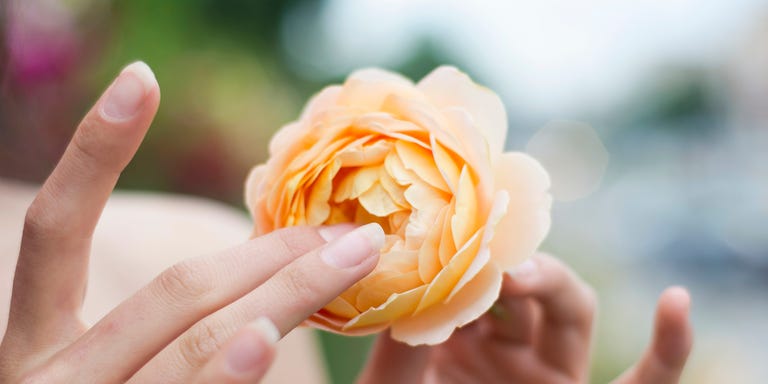Poll: How Much Do You Really Love Your Vagina?

Serious question: When’s the last time you thanked your vulva? What about your vagina? Let’s expand it to your reproductive organs as a whole—when was the last time you actually said “thank you”?
If your answer was anything other than “uh, never?” you’re a bold-faced liar, because literally no one does that. But that’s not to say it shouldn’t happen (though, IDK, maybe don’t squat down and actually say it).
There are, however, other ways to thank her—like by never douching or remembering to make your annual ob-gyn appointments.
So yeah, how kind are you really being to your vagina? Answer these Q’s (honestly, please!) to see if you’re giving your vag the self-care she deserves.
ICYMI: Your vulva is a super-sensitive area, so soaps that smell amazing can make you pretty itchy, says Jonathan Schaffir, M.D., an ob-gyn at The Ohio State University Wexner Medical Center. Instead of using your fave scented soap, try out a hypoallergenic soap like Cetaphil instead.
Let’s clear something up first: Your vagina is supposed to smell like a vagina, so floral scents are so not necessary—and possibly even harmful. “I don’t recommend scented pads or tampons,” says Mary Jane Minkin, M.D., a clinical professor of obstetrics, gynecology and reproductive sciences at Yale School of Medicine.
Using lube can help in two ways. First, the obvious: Lube can help with pain associated with vaginal dryness. But using lube can also up your odds of having an orgasm, according to a study from Indiana University’s Center for Sexual Health Promotion, released by Trojan Lubricants.
Lots of ob-gyns don’t like oil-based lubes, “because, as ob-gyns, we want you to use condoms, and oil-based lubricants don’t work with condoms,” says Amir Marashi, M.D., a board-certified ob-gyn. Oil-based lubricants like coconut oil can also change your pH level, leaving you at a higher risk of developing infections like bacterial vaginosis. Also, water-based lubes typically leave your body easily and quickly, versus oil-based lubes which can leave you feeling slick down there.
TBH, it’s probably not medically necessary to pee directly before or after having sex, says Sarah Horvath, M.D., a gynecologist in Philadelphia. Still, it’s not an awful habit to have, especially if you’re prone to UTIs.
There are two types of bacteria inside your vagina: the good bacteria and the bad bacteria. When you douche, you get rid of both. “[Your vagina’s] pH level is very delicately balanced,” says Jessica Shepherd, M.D., a gynecologist at the University of Illinois at Chicago. Without enough good bacteria, bad bacteria can flourish, leading to yeast infections and other issues like bacterial vaginosis.
If you’re prone to yeast infections, do your best to change after that HIIT class—for your vagina’s sake, if nothing else, suggests Natasha Johnson, M.D., director of the vulvovaginal disease center at Brigham and Women’s Hospital in Boston.
Many women do self-diagnose vaginal yeast infections, but in many cases, “they actually have bacterial vaginosis, which has similar symptoms but, unlike a yeast infection, needs to be treated with antibiotics,” says Jennifer Reinhold, Pharm.D., so it’s best to check with an ob-gyn.
Always, always, always wipe from front to back to avoid spreading fecal matter from your anus to your vagina, says Leslie E. F. Page, M.D., a gynecologist in Kansas. This is especially true if you’re using the bathroom after sex. “Due to swelling and micro-abrasions that can occur during intercourse, your vulvar and vaginal skin is particularly tender and prone to infection,” says Page.
Kegels are the best way to strengthen your pelvic floor (those muscles that support your uterus, bladder, small intestine, and rectum) but you’ve got to make sure you’re doing them correctly, says David Shusterman, M.D., founder of NY Urology. Some quick tips: Don’t squeeze too hard and go the full range (i.e., from totally relaxed, to totally clenched).
It’s important to wash your sex toy before and after you use it, says Leah Millheiser, M.D., director of the Female Sexual Medicine program at Stanford University Medical Center. And if you’re using it for both anal and vaginal stimulation, wash it between those uses, too, she adds.
Source: Read Full Article


